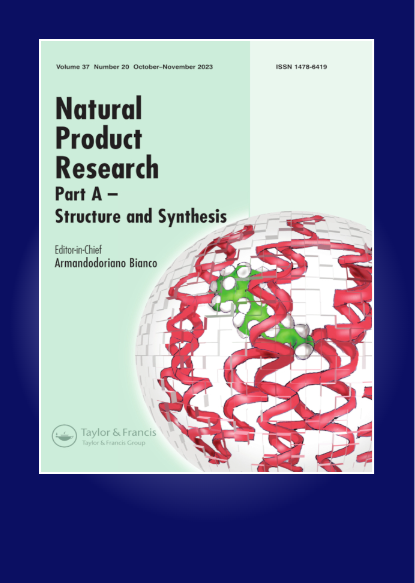“Effect of total phenol on the control of leafminer (Phytomyza horticola) infestation in Pea plants”
IF 1.9
3区 化学
Q3 CHEMISTRY, APPLIED
引用次数: 0
Abstract
To determine how vulnerable various pea genotypes are to leafminer infestation, a field experiment was conducted. On the basis of the presence of mines on five randomly selected leaflets from the upper, middle and lower parts of the plant, observations of larvae were made throughout the growing season. The total phenols were determined using the method described by Bray and Thorpe (1954, Analysis of phenolic compounds of interest in metabolism. Methods Biochem Anal. 52:1–27) and absorbance at 650 nm was measured using a spectrophotometer. There was a negative correlation between leafminer infestation and total phenol content. The UHF Pea-12 genotype, characterised by the lowest total phenol concentration (20.87 mg/100 g), exhibited the highest level of leaflet infestation (17.33%). Although UHF Pea-1 genotype had the lowest mean leaflet infestation (6.58%), it also had the highest phenol concentration (41.91 mg per 100 g). In context with this, the present study highlights the significance of host-plant resistance (HPR) in pest management.
总酚对豌豆叶螨(Phytomyza horticola)侵染的防治效果
为了确定不同豌豆基因型对叶螨的易感性,进行了田间试验。根据从植物的上、中、下部随机选择的5个小叶上是否存在地雷,在整个生长季节对幼虫进行了观察。总酚用Bray和Thorpe(1954)所描述的方法测定(代谢中感兴趣的酚类化合物的分析)。方法采用分光光度计测定其在650 nm处的吸光度。叶螨侵染与总酚含量呈负相关。UHF豌豆-12基因型总酚浓度最低(20.87 mg/100 g),小叶侵染率最高(17.33%)。虽然UHF Pea-1基因型的平均小叶侵染率最低(6.58%),但苯酚浓度也最高(41.91 mg / 100 g)。在此背景下,本研究强调了寄主植物抗性(HPR)在害虫防治中的重要意义。
本文章由计算机程序翻译,如有差异,请以英文原文为准。
求助全文
约1分钟内获得全文
求助全文
来源期刊

Natural Product Research
化学-医药化学
CiteScore
5.10
自引率
9.10%
发文量
605
审稿时长
2.1 months
期刊介绍:
The aim of Natural Product Research is to publish important contributions in the field of natural product chemistry. The journal covers all aspects of research in the chemistry and biochemistry of naturally occurring compounds.
The communications include coverage of work on natural substances of land and sea and of plants, microbes and animals. Discussions of structure elucidation, synthesis and experimental biosynthesis of natural products as well as developments of methods in these areas are welcomed in the journal. Finally, research papers in fields on the chemistry-biology boundary, eg. fermentation chemistry, plant tissue culture investigations etc., are accepted into the journal.
Natural Product Research issues will be subtitled either ""Part A - Synthesis and Structure"" or ""Part B - Bioactive Natural Products"". for details on this , see the forthcoming articles section.
All manuscript submissions are subject to initial appraisal by the Editor, and, if found suitable for further consideration, to peer review by independent, anonymous expert referees. All peer review is single blind and submission is online via ScholarOne Manuscripts.
 求助内容:
求助内容: 应助结果提醒方式:
应助结果提醒方式:


